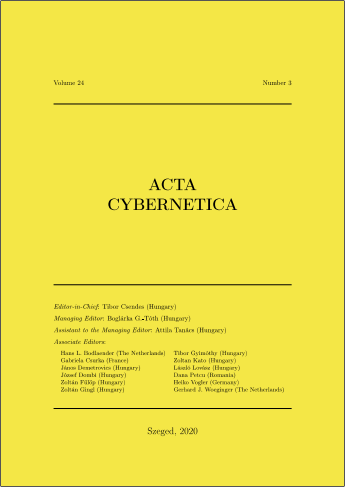Towards Analyzing the Influence of Measurement Errors in Magnetic Resonance Imaging of Fluid Flows
DOI:
https://doi.org/10.14232/actacyb.24.3.2020.5Keywords:
Magnetic Resonance Imaging, compressed sensing, uncertainty modeling, interval analysis, Krawczyk iterationAbstract
Magnet resonance imaging does not only have a large number of applications in the field of medical examinations. In addition, several promising applications were also reported for the measurement of technical fluid flows and for the measurement of temperature fields in technical devices which do not allow for a classical access by either arrays of flow meters on the one hand or by arrays of temperature sensors such as thermocouples on the other hand. Due to the fact that magnet resonance imaging can be performed in a non-invasive manner, it has the advantage to provide relevant data without disturbing the velocity and temperature fields by external sensor devices. Moreover, measurement information can also be obtained for scenarios in which a direct access to the media under investigation is hardly possible due to constructive limitations. To make this kind of measurement applicable also for dynamic scenarios, not only the spatial resolution but also the temporal one needs to be sufficiently accurate. If the temporal resolution is of interest, an acceleration of the measurement process becomes possible by compressed sensing techniques which make use of an undersampling of the so-called $k$-space. However, such compressed sensing approaches require a reconstruction of the original fields of the physical variables to be measured. In this paper, it is shown how interval arithmetic approaches can be employed to solve the necessary optimality criteria for the fluid velocity reconstruction under the assumption of bounded measurement errors.







